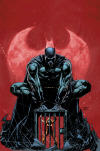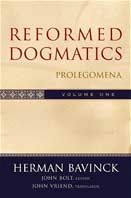Reading: "What Does It Mean to be Good?"
ModernReformation 15.3.2006
Enjoying: Fruit roll ups
Listening: AnberlinIn his introduction to
The Last Word and the Word After That, Brian D. McLaren makes the following statement:
Clarity is good, but sometimes intrigue may be even more precious; clarity tends to put an end to further thinking, whereas intrigue makes one think more intensely, broadly, and deeply.[1]
Mr. McLaren uses his own prescription here, because this is only true in a muddled sense; a sense which I have been guilty of all too often.
It is true that intrigue furthers the plot, and acts as its own catalyst for a good portion of thinking. However, in contrasting intrigue with clarity, we see a darker, subtle side to the thinking that is going on here.
For a better perspective, we must ask the question, "Further thinking about what?" As mentioned, intrigue is a terrific device to stimulate more sleuthing to crack the case, or to propel your reader to the end of a blogpost novel. But what if whatever current topic is the subject of the intrigue is not your terminal thought? What if that is not the conclusion, and there is more thinking to be done, either in a related field or translated into some new arena?
Intrigue for its own sake is unhelpful to the thinking process, and in the end confounds noetic efforts instead of helping them. Imagine attempting to come to a conclusion regarding some thorny issue amongst employees, when that conclusion will function carefully in any and all further decisions to be made. This is the circumstance all the time in real life. Before we can go on to further decisions, clarity must be achieved on this primary decision. One could liken it to compass work while steering a marine ship. If at every forty knots the ship was off a mere two or three degrees, after several days journey the ship would be far away from its desired destination. Similarly, if several contingent decisions must be made with each ending in "intrigue" rather than "clarity," the resulting destination will not be where the consensus needs to arrive at.
Clarity, on the other hand, acts as a catalyst too. However, we are quick to admit that at times, seeking clarity can lead to a mental roadblock. If the goal is pristine, everyone-is-on-the-same-page clarity, this requires work, a kind of brain-stretching work few are willing to commit to. In this sense, clarity can be a deterrent to "intense, broad, and deep" thinking. However, if one wishes to think "intensely, broadly, and deeply" about a complex issue, it is going to require thinking clearly about several smaller, interrelated issues. Those issues, as well as their relationship to one another, all have the opportunity to cause confusion and ultimate defeaters to the thinking if clarity isn't pursued. If done properly, clarity can indeed function as a catalyst - perhaps the only kind of catalyst - for thinking on a deeper level.
Clarity is an important and vital tool that Christians especially must seek to master. There are several reasons why we need it. First of all, it reflects God's clear revelation to us. Though there are serious hermeneutical disagreements regarding Scripture, God has not laid down His Word in an unintelligble language, in a fourteenth dimension, according to a seventh sense. Instead, the Word is near us, in our hearts and on our lips. The ultimate revelation was Jesus Christ Himself, not in some "intriguing" form - though the hypostatic is anything but easy - but instead tabernacled amonst us, and was human at every point as we are (though without sin).
Seeking clarity honors the Decalogue and the command not to bear false witness. How often Abraham caused trouble by not seeking clarity for his wife while traveling in foreign countries. Samson's struggle with women was characterized by a lack of clarity regarding his own call and his communication with Philistine women. I know in my own life that by seeking less than clarity in my communication, I have sought to create wiggle-room and openings that felt claustrophobic - places that should have maintained boundaries where I desired to form loopholes. These are wonderful opporunities for people to "give the impression of...," "create the feeling that...," and not look closely after their doctrine. Mr. Greg Gilbert, commenting on Mr. McLaren's above statement, writes what is all too common for many of us: "When it comes right down to it, McLaren trades in a clarity he doesn't like for a confusion he can be comfortable with."[2]
We have an onus to seek clarity as often as possible for the glory of God and His revealed truth. In a time when the life of the mind is so neglected in the Christian church, this is a pertinent discipline to be established. Furthermore, contrary to what Mr. McLaren believes, clarity is the more loving thing to do. We honor our neighbor when we give them the truth that - though perhaps painful - is what we really need to hear.
__________________________________
Footnotes
[1]McLaren, Brian D. The Last Word and the Word After That: A Tale of Faith, Doubt, and a New Kind of Christianity (Wiley, John & Sons, Inc., 2005) p. xv. Back
[2]Gilbert, Greg "Review" ModernReformation Volume 15, No. 3 2006. p. 13. Back
Labels: the long war, theology





















































